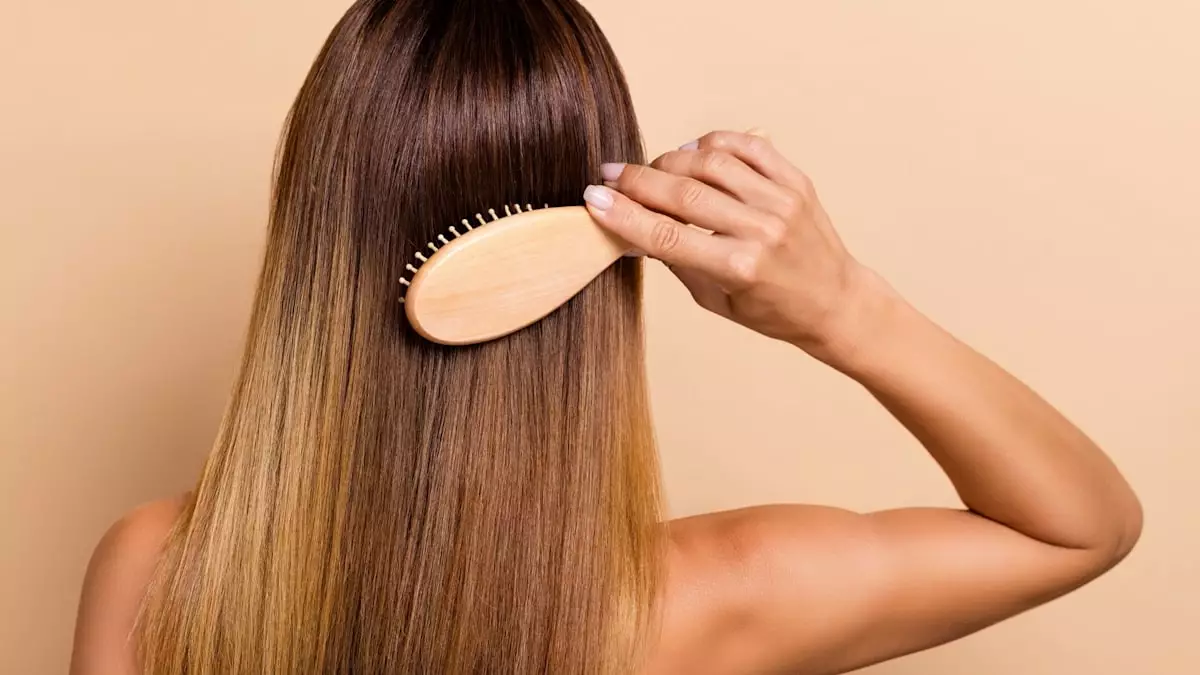Hair loss is a common symptom of menopause that can be distressing for many women. It is essential to understand why your hair has suddenly changed in order to effectively manage hair thinning or loss. Dr. Sophie Shotter, a hormone health expert, provides valuable insights into addressing this issue.
Dr. Sophie emphasizes the importance of hormone testing to gain insight into what is happening in your body. Oestrogen deficiency and androgen dominance are common drivers of hair loss during menopause. By getting your hormones checked, you can obtain a more accurate picture of your hormonal balance. It is also crucial to include thyroid hormone testing, as imbalances in thyroid function can also contribute to hair thinning.
Deficiencies in key nutrients such as Vitamin B12, Vitamin D, and iron can play a significant role in hair loss. Dr. Sophie explains that correcting these imbalances is essential for supporting healthy hair growth. Without addressing these deficiencies, interventions aimed at improving hair health may not be effective.
Managing Stress Levels
High stress levels can exacerbate hormonal imbalances and contribute to hair loss during menopause. Dr. Sophie recommends incorporating stress-reducing activities like yoga or meditation into your routine. By focusing on stress reduction, you can make tangible improvements in your hair health. Finding activities that you enjoy and can sustain over time is key to effectively managing stress.
Regular exercise not only benefits your overall health but also plays a role in promoting circulation in the scalp. This, in turn, contributes to healthy hair growth. Dr. Sophie suggests engaging in regular physical activity to optimize the delivery of nutrients and oxygen to the scalp. A well-rounded exercise routine is beneficial for both your physical and mental well-being during menopause.
A balanced diet rich in a variety of plants, healthy fats, and proteins provides essential nutrients for healthy hair growth. Supplementing with B6 and folic acid can also support hair growth. Dr. Shotter recommends products like Viviscal Professional, which contain key ingredients proven to be effective in promoting hair health.
Protecting Your Hair from Damage
Overuse of heat tools, such as hair straighteners, can lead to hair damage and breakage. It is crucial to minimize the use of heat styling and invest in high-quality tools that require less heat. Additionally, avoiding vigorous towel-drying and using gentle hair brushes can help prevent hair breakage. Using heat protection sprays and products like K18 can also protect the hair shaft and nourish your hair.
Managing hair loss during menopause requires a comprehensive approach that addresses hormonal imbalances, nutrient deficiencies, stress, and lifestyle factors. By incorporating these effective tips from Dr. Sophie Shotter, you can improve the health, texture, and volume of your hair during this transition period. Remember that consistency and patience are key to seeing results in managing hair loss effectively.


Leave a Reply